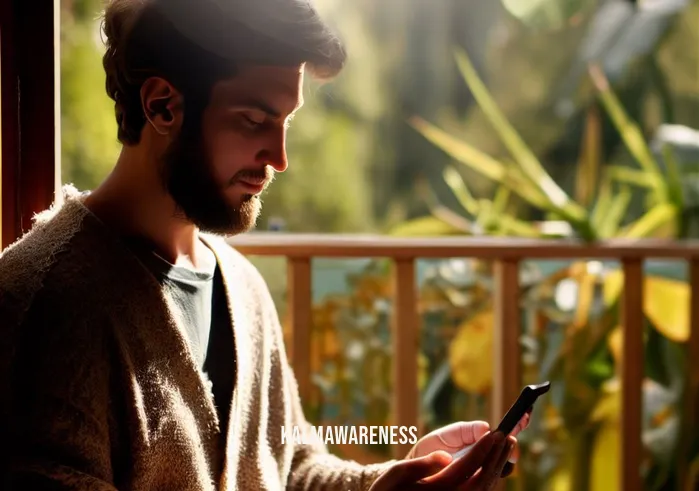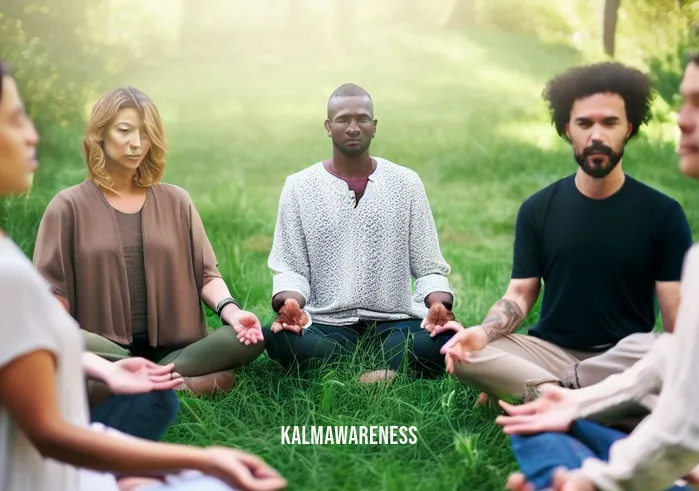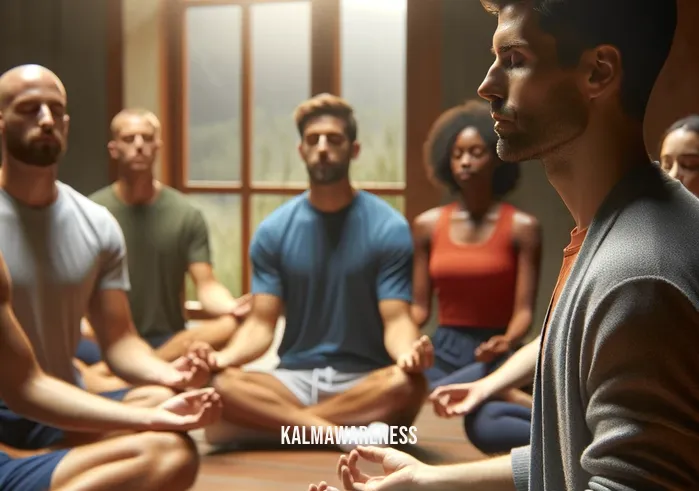Free Guided Meditation for Anxiety: The Transformative Practice of Mindfulness
The modern world is a ceaseless whirlwind of activities, responsibilities, and distractions. Stress levels are on the rise, and anxiety is increasingly becoming a common struggle for many. If you’re one of those people who’s caught in the cycle of worry and tension, you’re not alone. The good news? There’s a powerful antidote—free guided meditation for anxiety. This practice falls under the umbrella of mindfulness, a mental state that focuses on the present moment, and incorporates elements of calm, coping, and stress relief. Through a detailed discussion spread across multiple segments, we’ll delve deep into the mechanics, benefits, and practical aspects of guided meditation for anxiety.
Understanding Anxiety: More than Just Worry
Before we get into the specifics of meditation, it’s crucial to comprehend the nuanced nature of anxiety. It’s more than just a feeling of worry or a momentary sense of unease. Anxiety can manifest as physical symptoms like increased heart rate, excessive sweating, and even as disrupted sleep patterns. While some medical treatments focus on alleviating these symptoms, they often don’t address the root cause. This is where mindfulness steps in, offering a way to cope that involves attaining a peaceful state of mind in which thoughts are not occupied by worry.
Why Choose Guided Meditation?
Meditation is an age-old practice with roots in various cultures. But for a beginner, the idea of sitting in silence and focusing the mind can be daunting. This is where guided meditation comes into play. As you might guess from the name, this involves following the voice or instructions of a guide, either in person or via a recording. This type of meditation is particularly useful for those dealing with anxiety, as the guidance can help to stabilize your thoughts and emotions.
- Structured Approach: For someone who’s new to the practice, it offers a clear path to follow.
- Convenience: Being guided means you can practice anytime, anywhere. Yes, you can even meditate lying down.
- Variety: There are various forms of guided meditation tailored to specific needs—from EMDR meditation aimed at trauma healing, to mindful hypnobirthing for expectant mothers.
The Role of Breathing in Meditation
A common element of some meditation exercises is the focus on breathing. Why is this important? Deep, measured breaths serve as an anchor, keeping you rooted in the present moment. By turning your focus inward to your breath, you engage in a form of sustainable self-care that doesn’t require any external crutches.
“Breath is the bridge which connects life to consciousness, which unites your body to your thoughts.”
— Thich Nhat Hanh
Beyond Just Relaxation: Calm, Coping, and More
Engaging in guided meditation for anxiety is not merely about momentary relaxation; it’s about developing a toolset that aids in long-term stress relief and mental resilience. Several methods like mindful movement for sleep or clearing energy meditation go beyond simple mindfulness exercises. They offer comprehensive techniques that can be applied in daily life, making coping with stress and anxiety more manageable. This is a form of mental training that allows you to remain calm and composed, even in stressful situations.
What’s Next?
Having established the foundation, it’s time to dive into the specifics—how to begin your journey with free guided meditation for anxiety, the science that validates its efficacy, and tips to make the practice a daily habit. If you’re eager to discover how this transformative practice can make a significant difference in your life, continue reading.

The Nuts and Bolts of Free Guided Meditation for Anxiety: Making Mindfulness Work for You
Understanding that free guided meditation for anxiety is a viable solution to deal with stress and apprehension is only the first step. The next course of action involves delving into the various types, techniques, and practices that can make this concept a personalized experience for you. From understanding how teenagers are walking towards mindfulness to utilizing specific frequencies like 256 Hz, this chapter will offer a detailed roadmap.
Varieties of Free Guided Meditation: Choose Your Path
Believe it or not, meditation is not a one-size-fits-all solution. The type of meditation that may work for one person might not be as effective for another. For instance, Jack Kornfield’s meditation for beginners may offer an easy entry point, while more advanced techniques like Rouse Yoga integrate meditation and physical movements for those looking for something more challenging. So how do you decide?
Table: Types of Guided Meditation for Anxiety
| Type of Meditation | Core Focus | Suitable For |
|---|---|---|
| Mindful Breathing | Breathwork | Beginners |
| EMDR Meditation | Trauma Healing | Intermediate |
| Yoga Meditation | Physical and Mental Harmony | Advanced |
| Mindful Hypnobirthing | Pregnancy-related Anxiety | Expectant Mothers |
| 256 Hz Meditation | Frequency-Based Healing | Those Interested in Sound Healing |
Practices Tailored for Youth and Lifestyle
It’s a misconception that meditation is only for adults or those who have a lot of time to spare. The rise of teenagers walking towards mindfulness serves as a prime example of how age is no barrier to the benefits of meditation. It’s all about adapting the practice to fit into your lifestyle, making it a form of sustainable self-care.
- For the Busy Professional: Short, impactful sessions that get deep, fast. Here’s how you can learn how to get deep so fast.
- For the Stay-at-Home Parent: Incorporate mindful movement for sleep as a night-time routine.
- For the Student: Take short breaks between studies to engage in focused breathing exercises.
The Wisdom in Knowing: Why Being Judgment-Free Matters
Mindfulness, at its core, involves a judgment of the wise, which means being non-judgmental about your own experiences. You might not get it right the first time, and that’s okay. The idea is to build up your ability to remain in a state of calm and coping over time.
Taking One Step at a Time: Making it a Habit
Creating a habit of meditation doesn’t have to be a monumental task. You could start by dedicating just a few minutes each day. Over time, this small commitment will yield big returns.
- Day 1: Basic breathing exercises
- Day 2: Introduction to mindful movement
- Day 3: Practicing grounding techniques
- Day 4: Embracing judgment of the wise
- Day 5: Your first complete session
By following such a structured approach, you’d be surprised how meditation can be made simple, even for the busiest of individuals.
What’s Coming Up Next
While we’ve discussed various types and techniques of guided meditation for anxiety, the journey of mindfulness is far from over. The next chapter will introduce you to the scientific evidence that backs up these practices, and how technology can play a part in enhancing your experience. From apps to wearables that assist in maintaining a meditative state, we’ll explore how technology is revolutionizing the way we approach mental well-being. Continue reading to unveil these exciting innovations.

Harnessing Hope and Mindfulness: The Inspirational Side of Free Guided Meditation for Anxiety
So, you’ve gotten acquainted with the basics of free guided meditation for anxiety and explored its various forms and applications. Now it’s time to dig a little deeper and look into the transformative power of meditation for not just reducing stress and anxiety but also for inspiring hope and mindful living.
The Power of a Mind at Rest: Anxiety and Its Antidote
It’s important to understand that when it comes to mental health, the ultimate goal involves attaining a peaceful state of mind in which thoughts are not occupied by worry. As the ancient proverb goes, “A quiet mind is able to hear intuition over fear.”
“You don’t have to control your thoughts. You just have to stop letting them control you.” – Dan Millman
Embarking on a Journey: Everyday Stories of Transformation
For many, the realm of mindfulness and guided meditation offers not just stress relief but a profound transformation. For instance, the story of how touching that body part during meditation led to self-healing serves as a testimony to the power of mindfulness.
“The greatest weapon against stress is our ability to choose one thought over another.” – William James
These stories infuse a sense of realistic hope and make the practice of free guided meditation for anxiety more relatable.
Can You Find Calm While Lying Down? Yes, You Can!
One of the most common questions about meditation is its posture. Can you meditate lying down? The answer is yes. This flexibility makes meditation an accessible and easy-to-integrate practice in your daily life.
“Be present in all things and thankful for all things.” – Maya Angelou
Elements that Inspire: The Hidden Gems in Meditation Exercises
Often the element of some meditation exercises goes beyond simple relaxation. Whether it is the soothing sound of water, the flicker of a candle, or a meaningful mantra, these elements can elevate your meditative experience and provide a deeper level of inspiration.
“Mindfulness isn’t difficult; we just need to remember to do it.” – Sharon Salzberg
One Meditation for Each Blessed Day
Incorporating a variety of meditation techniques into your routine can keep your practice fresh and inspiring. Consider adopting the concept of one for each blessed day, dedicating different days of the week to specific types of meditation. This approach can enhance your overall well-being and keep you motivated to continue your practice.
- Monday: Begin with a gratitude meditation to set the tone for the week.
- Tuesday: Engage in a clearing energy meditation to declutter your mind.
- Wednesday: Try a grounding exercise to bring you back to the moment.
- Thursday: Opt for EMDR meditation if you’re dealing with specific traumas or phobias.
- Friday: End the week with a loving-kindness meditation to send good vibes to yourself and others.
What Awaits You in the Next Chapter
We’ve looked at how free guided meditation for anxiety isn’t just a coping mechanism but a life-transforming tool. With the numerous options available, tailored to varying needs and lifestyles, it’s a realm of endless possibilities. However, even the most ancient practices evolve, and in the next chapter, we will look at the technological innovations that are revolutionizing meditation practices. From wearable gadgets to mobile apps, you will discover how technology is making it easier than ever to practice mindfulness. So stay tuned for this exciting evolution!

Unpacking the Essentials: A Closer Look at Free Guided Meditation for Anxiety
As we’ve navigated through the transformative world of mindfulness and meditation, one thing has become clear: free guided meditation for anxiety is not just a temporary coping strategy but a life-altering journey. This chapter aims to unpack the different facets of guided meditation for anxiety relief, using bullet points and lists for clarity and ease of understanding.
Understanding Frequencies: The Role of Sound
When we talk about meditation, we often focus on the mental aspects, overlooking the importance of sound frequencies in enhancing the experience. For instance, meditations accompanied by soundscapes set at 256 Hz benefits are said to promote healing and transformation.
- Solfeggio Frequencies: Harmonic scales used for healing.
- Binaural Beats: Create a third tone that encourages specific brain states.
- Nature Sounds: Evoke tranquility and connection to the environment.
How Fast Can You Expect Results?
You may wonder how we get deep so fast into a meditative state, especially during guided sessions.
- Immediate Impact: Helps in immediate stress relief and focus.
- Medium-Term Benefits: Regular practice over weeks can show noticeable improvements in sleep and anxiety.
- Long-Term Transformation: Consistent practice over months or years can lead to deep-rooted emotional healing.
Techniques for All Ages
From school-going children to seniors, everyone can benefit from meditation. Teenagers walking through high school corridors or adults navigating workplace stress can incorporate these techniques for effective stress management.
- Breathing Exercises: For beginners of all ages.
- Mindfulness Meditation: Suitable for teenagers and adults.
- Body Scan: Great for seniors to become aware of bodily sensations.
The Sustainable Approach: Not Just a Trend
In a world where wellness practices can become fads, it’s crucial to focus on sustainable self-care.
- Regular Check-ins: Monitor your emotional state daily.
- Rest Days: Don’t push yourself too hard; it’s okay to skip a day.
- Community Support: Engage in group meditations or online forums for a supportive environment.
Beyond Textbooks: Unconventional Methods
Sometimes, the best approach to meditation isn’t the most conventional one. For example, Jack Kornfield’s meditation for beginners offers non-traditional techniques for attaining peace.
- Art Meditation: Use coloring or sketching as a meditative practice.
- Moving Meditation: Tai Chi and yoga can also be meditative in nature.
- Guided Imagery: Use your imagination to escape to serene locations mentally.
The Wonders of Meditation Simplified
Even if you’re a novice, understanding meditation made simple can be your first step toward a balanced life.
- Morning Routine: A quick 5-minute meditation to start your day.
- Mid-day Recharge: A 3-minute breathing exercise.
- Night-time Wind-down: A longer, more restful meditation to prepare for sleep.
A Peek into the Final Chapter
We’ve delved deep into the nitty-gritty of free guided meditation for anxiety, covering everything from frequencies to techniques suitable for all age groups. However, it’s essential to remember that every individual’s journey is unique. As we transition to the final chapter, we’ll be pulling all the threads together, summing up the key takeaways, and presenting a straightforward guide on how to implement these practices into your everyday life. Stay tuned for the ultimate guide to living a more mindful, anxiety-free life!

The Journey’s End: A New Beginning with Free Guided Meditation for Anxiety
As we reach the conclusion of our enlightening exploration into the world of free guided meditation for anxiety, it’s crucial to remember that every end is merely a new beginning. The practices, techniques, and insights we’ve discussed are not just temporary remedies but lifelong tools to support you on your journey toward a more peaceful, fulfilling life.
The State of Unoccupied Mind: The Ultimate Goal
The overarching aim of guided meditation for stress relief, calmness, and mindfulness is to attain a peaceful state of mind where thoughts are not occupied by worry.
A Quick Recap
- We looked into the significance of sound frequencies and their healing potential.
- We considered how meditation offers immediate relief and long-term emotional balance.
- We explored age-appropriate techniques and sustainable practices.
- We broke down unconventional methods and simplified them for beginners.
When and Where? The Versatility of Guided Meditation
One of the most appealing aspects of guided meditation is its flexibility. Whether you’re sitting at your desk, lounging on your couch, or even lying down, meditation can seamlessly blend into your daily routine.
Where Wisdom and Compassion Meet: The Importance of Non-Judgment
Practicing meditation is not just about relieving anxiety but also about cultivating a judgment-free, wise mindset. Embracing every experience, positive or negative, is the cornerstone of a balanced emotional state.
One for Each Blessed Day: Your Daily Dose of Calm
To keep you going, consider a daily guided meditation as your personal oasis of peace and tranquility.
A Parting Note: Thank You for Joining Us!
Before we wrap up, we’d like to extend a heartfelt thank you for spending your valuable time exploring the universe of free guided meditation for anxiety with us. Rest assured, our commitment to delivering insightful and enriching content doesn’t end here. We look forward to welcoming you back for more engaging features, expert interviews, and transformative journeys in future editions of our magazine.
Call-to-Action: Your Next Steps
- Consider revisiting the earlier chapters to reinforce your understanding.
- Share this guide with someone who might benefit from it.
- Keep an eye on our upcoming editions for more empowering insights.
May your journey into meditation not only alleviate stress but also bring an everlasting sense of calm and joy to your life. Thank you for taking this trip with us, and we wish you a harmonious balance in all your future endeavors. Stay tuned for more enlightening content, and until then, be well! 🌿





